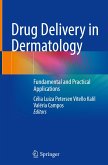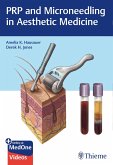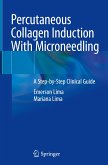Skin accounts for approximately 15% of an adult's total body weight, with a surface of about 2m². It provides an entry and exit barrier to various substances, offers effective protection against harmful substances, microorganisms and ultraviolet radiation, and is also paramount in immunology and body homeostasis, preventing dehydration and loss of essential minerals.
The topical route has a number of advantages over oral and parenteral routes: no first-pass metabolism, greater convenience resulting in better treatment compliance, lower side-effect frequency, and prompt dosing cessation if required. However, the stratum corneum allows penetration of only 1 to 5% of substances applied topically, making this application route much less efficient. Lipophilic and small molecules (up to 500 Da) can cross the stratum corneum, since keratinocytes are covered by a lipid matrix, while it is virtually impossible for hydrophilic and large drugs to cross intact, normal skin, which means that passive topical delivery is restricted. To address this, techniques have been developed aimed at optimizing drug skin penetration by means of chemical, mechanical and physical methods, such as adding permeating active agents and using occlusion, iontophoresis, microneedling, lasers and intense pulsed light, and it is now possible to deliver medication to different skin layers or transdermally to the systemic circulation.
Drug delivery is a hot topic in dermatology, with a Pubmed search generating 203431 articles. Offering a detailed review of this emerging therapeutic option, including the various methods available, this unique book guides physicians and doctors in selecting the correct technologies, technique and products for each patient.
Hinweis: Dieser Artikel kann nur an eine deutsche Lieferadresse ausgeliefert werden.
The topical route has a number of advantages over oral and parenteral routes: no first-pass metabolism, greater convenience resulting in better treatment compliance, lower side-effect frequency, and prompt dosing cessation if required. However, the stratum corneum allows penetration of only 1 to 5% of substances applied topically, making this application route much less efficient. Lipophilic and small molecules (up to 500 Da) can cross the stratum corneum, since keratinocytes are covered by a lipid matrix, while it is virtually impossible for hydrophilic and large drugs to cross intact, normal skin, which means that passive topical delivery is restricted. To address this, techniques have been developed aimed at optimizing drug skin penetration by means of chemical, mechanical and physical methods, such as adding permeating active agents and using occlusion, iontophoresis, microneedling, lasers and intense pulsed light, and it is now possible to deliver medication to different skin layers or transdermally to the systemic circulation.
Drug delivery is a hot topic in dermatology, with a Pubmed search generating 203431 articles. Offering a detailed review of this emerging therapeutic option, including the various methods available, this unique book guides physicians and doctors in selecting the correct technologies, technique and products for each patient.
Hinweis: Dieser Artikel kann nur an eine deutsche Lieferadresse ausgeliefert werden.







